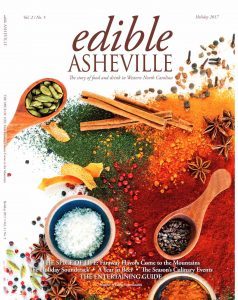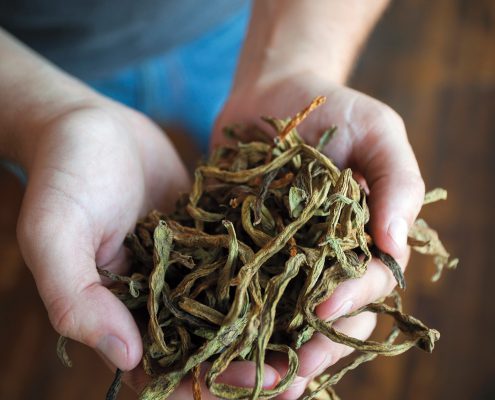 https://www.edibleasheville.com/wp-content/uploads/2016/07/Leather-Britches-Edible-Asheville-14.jpg
2045
1500
dev_edible
https://www.edibleasheville.com/wp-content/uploads/2016/07/Edible-Asheville-Logo-2.png
dev_edible2016-07-20 01:57:252016-10-20 13:31:57Leather Britches
https://www.edibleasheville.com/wp-content/uploads/2016/07/Leather-Britches-Edible-Asheville-14.jpg
2045
1500
dev_edible
https://www.edibleasheville.com/wp-content/uploads/2016/07/Edible-Asheville-Logo-2.png
dev_edible2016-07-20 01:57:252016-10-20 13:31:57Leather Britches
Hill of Beans: the savory story of mountain legumes.
Plus summer blueberries and the GIY (that’s Grind It Yourself) burger.
 https://www.edibleasheville.com/wp-content/uploads/2016/07/Leather-Britches-Edible-Asheville-14.jpg
2045
1500
dev_edible
https://www.edibleasheville.com/wp-content/uploads/2016/07/Edible-Asheville-Logo-2.png
dev_edible2016-07-20 01:57:252016-10-20 13:31:57Leather Britches
https://www.edibleasheville.com/wp-content/uploads/2016/07/Leather-Britches-Edible-Asheville-14.jpg
2045
1500
dev_edible
https://www.edibleasheville.com/wp-content/uploads/2016/07/Edible-Asheville-Logo-2.png
dev_edible2016-07-20 01:57:252016-10-20 13:31:57Leather Britches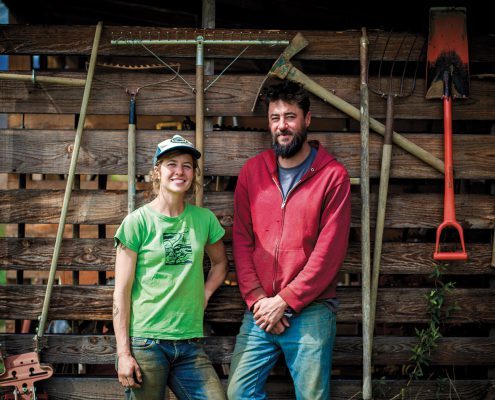
The Great Blueberry Rescue
The first summer Rett Murphy and Kathryn Skelley-Watts owned their farm, a visiting friend walked into a field overgrown with weeds and immediately disappeared from sight. A few minutes later, Murphy said, “I saw his hand rise up over the jungle, holding a few berries.” With that, plans for the farm changed.

Inside the Wine Cellar at Biltmore Estate
The winery at the Biltmore Estate sells more than a million bottles a year, producing award-winning wines that have been served at the White House.
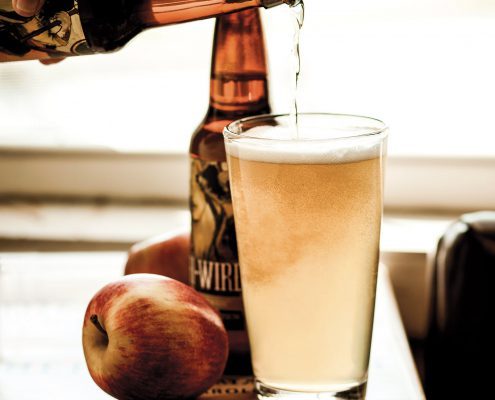
Beer From the Ground Up
Western North Carolina has no shortage of craft brewers. But while the beer is made locally, most of the primary ingredients that go into it are shipped in from other states, or even other countries.
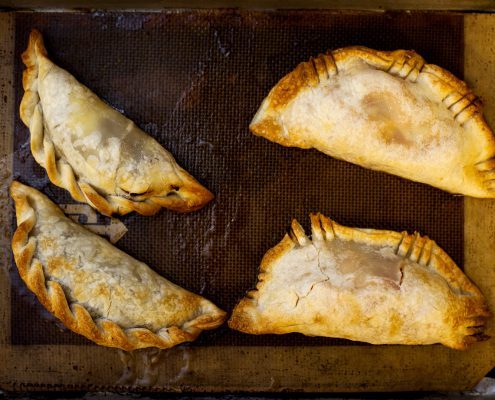
From Argentina to Asheville
Her empanadas are Argentinean, her crepes are French, her tamales are Mexican, but Cecilia Marchesini’s love of cooking carries a different passport.
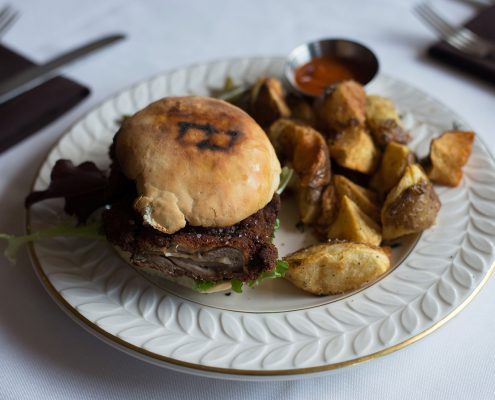
Fine Arts, Fine Food
For a perfect day trip, visit the Penland School of Crafts in Mitchell County and follow up with a meal from chef Nate Allen at Knife and Fork.
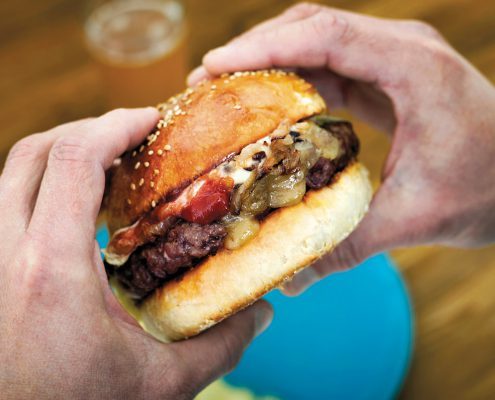
The GIY Burger
For the best hamburger, grind it yourself. Asheville’s own Meredith Leigh, author of The Ethical Meat Handbook, tells you how.
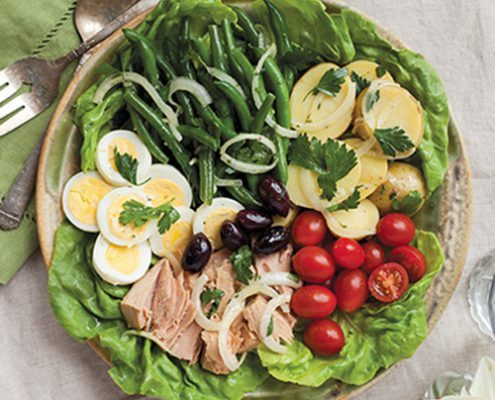
Nicoise Salad
This elegant yet simple salad shows off the very best of summer produce and herbs. Served with a crisp rosé, it's perfect for a light weekend lunch. Traditional Niçoise is made with haircots verts, but feel free to experiment with runners or asparagus beets.
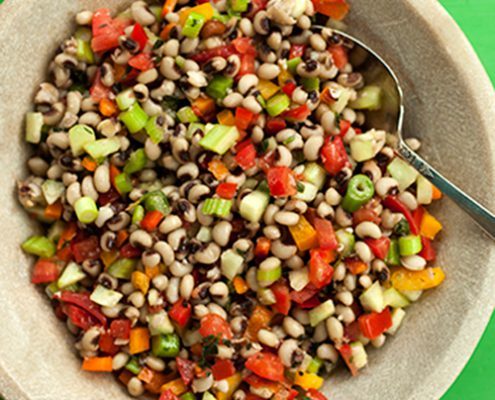
Black-Eyed Pea Relish with Heirloom Tomatoes
This is a dish of summer, when heirloom tomatoes are at their peak. "It makes a great complement to the rich, smoky flavor of barbeque and grilled meat," says Jeff Miller, Luella's chef, and pit boss.
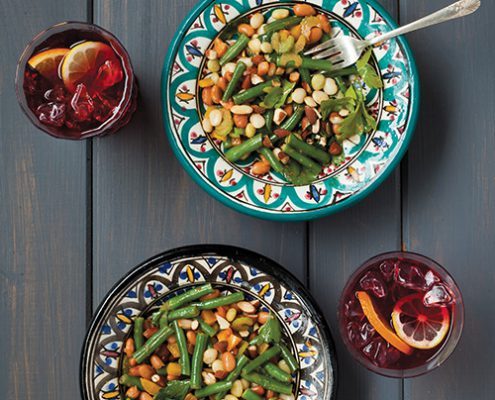
Three-Bean Salad with Smoked Paprika Dressing
Smoked paprika lends just the right flavor nuance to the acidity of this dressing. Feel free to swap out the green beans in favor of an Appalachian heirloom pole bean, though these may require a bit more cooking time.
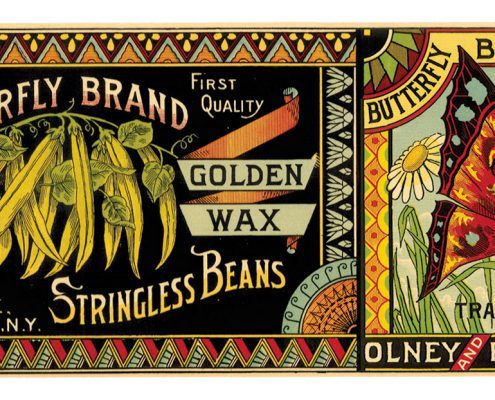
How the String Bean Lost its String
Would a string bean be a string bean if it had no string? Such philosophical questions never bothered C.N. Keeney, a New York plant breeder in the late 19th century.
THE WEEKLY REVEL
Sign up for your free handpicked guide to enjoying life around Asheville.
Available weekly from May to October.


